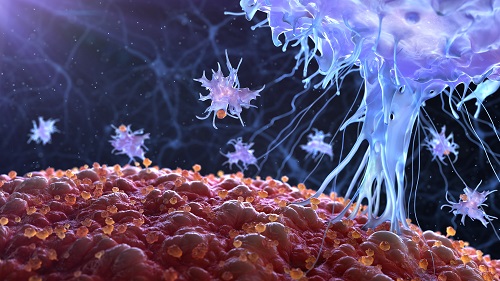March 1, 2018 (Medical News Today)
Researchers at the Sahlgrenska Academy in Sweden conducted a thorough investigation on the role of long noncoding RNA in the development of cancer tumors.
Researchers have known there is a relationship between noncoding RNA and cancer. RNA acts as a messenger carrying instructions from DNA to controlling the synthesis of proteins. A noncoding RNA is a functional RNA molecule that is transcribed from DNA but not translated into proteins. Researchers have realized that by downregulating noncoding RNA action, as a result, it has seen to reduce tumor growth in a mouse model of lung cancer by up to 50 percent. Since RNA sequencing is used to identify the appropriate molecules, this is a tool that allows researchers to view the range of expressed RNA related to decreased tumor growth.
Following the study, mice were grafted with human lung cancer tissue that had been injected with locked nucleic acid antisense oligonucleotides – which is an agent that blocks the action of applicable noncoding RNA – twice every week. Furthermore, cancerous tumors had almost halved in size within 15 days.
Researchers suggest that this system in the future can be used to treat lung cancer in humans, with correspondingly favorable conclusions. More thorough studies will be able to verify the potential to conduct clinical trials on patients. Ultimately, this RNA treatment may perhaps be the future in the treatment of all cancers.
















Leave a Reply